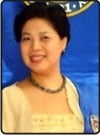A Model of Formative Assessment and Self Regulated Learning for Large Classes: An Interface between Internal and External Feedback
Abstract
ABSTRACT: This paper presents how formative assessment can be used in large classes. In particular, this paper discusses the use of both internal and external feedback and how students may capitalize on using external feedback to help them process and take control of their own learning, making them self-regulated learners. A key argument this paper presents is that proper planning of assessment strategies in large classes provide avenues for students to use feedback from their teachers and their peers to guide their own feedback strategies in redesigning their works. Finally, a model of formative assessment angled at both external and internal feedbacks is proposed. The results proved that formative assessment is an important classroom tool in handling large classes. Particularly, in using formative assessment, the students take charge of their own learning, thus, giving their internal feedback which is critical in defining and redefining their works. Further, the results showed that timely feed-backing is necessary in order to achieve a well designed formative assessment plan.
KEY WORD: Formative assessment, large classes, planning of assessment strategies, internal and external feedback, and self-regulated learners.
IKHTISAR: Makalah ini menyajikan bagaimana penilaian formatif dapat digunakan di kelas-kelas besar. Khususnya, makalah ini membahas penggunaan umpan-balik internal dan eksternal dan bagaimana siswa dapat menggunakan umpan-balik eksternal untuk membantu mereka memproses dan mengontrol pembelajaran mereka sendiri, yang membuat mereka menjadi siswa yang mampu mengatur diri mereka sendiri. Alasan utama disajikannya makalah ini adalah bahwa perencanaan strategi penilaian yang tepat di kelas-kelas besar memberikan kesempatan bagi para siswa untuk menggunakan umpan-balik dari para guru dan teman-teman mereka untuk menuntun strategi umpan-balik mereka sendiri dalam merancang kembali pekerjaan mereka. Akhirnya, suatu model penilaian formatif berbelok pada umpan-balik internal dan eksternal yang disarankan. Khususnya, dalam menggunakan penilaian formatif, para siswa mempertanggungjawabkan pembelajaran mereka sendiri, sehingga memberikan umpan-balik internal yang penting dalam menjelaskan dan menentukan kembali pekerjaan mereka. Selanjutnya, hasil kajian menunjukan bahwa pemberian umpan-balik yang tepat merupakan hal yang sangat penting untuk mencapai suatu rencana penilaian formatif yang dirancang dengan baik.
KATA KUNCI: Penilaian formatif, kelas besar, perencanaan starategi penilaian, umpan-balik internal dan eksternal, dan siswa yang mengatur sendiri.

About the Author: Jennie V. Jocson, Ph.D. is a Lecturer at the Department of LBEL (Linguistics, Bilingual Education, and Literature), College of Languages, Linguistics, and Literature PNU (Philippine Normal University), Taft Avenue, Manila, Philippines. For academic purposes, she can be reached at: jeng_dana2@yahoo.com.ph and jocson.jv@pnu.edu.ph
How to cite this article? Jocson, Jennie V. (2012). “A Model of Formative Assessment and Self Regulated Learning for Large Classes: An Interface between Internal and External Feedback” in SOSIOHUMANIKA: Jurnal Pendidikan Sains Sosial dan Kemanusiaan, Vol.5, No.2 [November], pp.227-238. Bandung, Indonesia: Minda Masagi Press owned by ASPENSI, ISSN 1979-0112.
Chronicle of article: Accepted (September 1, 2012); Revised (October 3, 2012); and Published (November 20, 2012).
Full Text:
PDFReferences
Barr & Tagg. (1995). “A New Paradigm for Undergraduate Education” in Change, 6.
Bell, B. & B. Cowie. (2001). The Characteristics of Formative Assessment in Science Education. Khumer: Dordecal.
Black & Williams. (1998). “Assessment and Classroom Learning” in Assessment in Education, Vol.2.
Brookhart, Susan. (2009). “Exploring Formative Assessment” in PLS Series. USA: Association for Supervision and Curriculum Development.
Brown, Douglas H. (2004). Language Assessment: Principles and Classroom Practices. NY: Pearson Education, Inc.
Carvone, L. (1998). Teaching Large Classes: Tools and Strategies. CA: Sage Publication.
Cruz, Isagani & Ester Vallado Daroy [eds]. (1988). How to Teach Literature: A Manual of Readings. Manila: DLSU Press.
Gibbs, G. & A. Jenkins. (1992). Teaching Large Classes in Higher Education: How to Maintain Quality with Reduced Resources. Herndon, VA: Stylus Publishing.
Hoxby, C. (2000). “The Effects of Class Size on Student Achievement: New Evidence from Natural Population Variation” in Quarterly Journal of Economics, 116, pp.1239-1286.
Juwah et al. (2004). Enhancing Student Learning Through Effective Formative Feedback. Manila: The Higher Education Academy Generic Center.
Krueger, A. (1999). “Experimental Estimates of Education Production Functions” in Quarterly Journal of Economics, 114, pp.497-532.
Nicol, David J. & Debra MacFarlane-Dick. (2006). “Formative Assessment and Self-Regulated Learning: A Model and Seven Principles of Good Feedback Practice” in Studies in Higher Education, Vol.31.
Nicol, David J. & J.T. Boyle. (2003). “Peer Instruction versus Class-Wide Discussion in Large Classes: A Comparison of Two Interactions Methods in Wired Classroom” in Studies in Higher Education, 28, pp.457-473.
Nightingale, P. et al. (1996). Assessing Learning in Universities. Sydney: University of South Wales Press.
Pintrich, P.R. & A. Zusho. (2002). “Student Motivation and Self-Regulated Learning in the College Classroom” in J.C. Smart & W.G. Tierney [eds]. Higher Education: Handbook of Theory and Research, Vol. XVII. NY: Agathon Press.
Rust, Chris. (2001). “A Briefing on Assessment of Large Groups” in Learning and Teaching Support Network: Higher Education Handbook, Vol.2. Manila: The Higher Education Academy Generic Center.
Sadler, D.R. (1989). “Formative Assessment and the Design of Instructional System” in Instructional Science, pp.114-117.
Showalter, Elaine. (2003). Teaching Literature. UK: Blackwell Publishing.
Stiggins, R. (2005). “From Formative Assessment to Assessment for Learning: A Path to Success in Standard-based Schools” in Phi Delta Kappa.
Zimmerman, B.J. & D.H. Schunk. (2004). Self-Regulated Learning and Academic Achievement: Theoretical Perspectives. NJ: Lawrence Erlburn Associates.
SOSIOHUMANIKA: Jurnal Pendidikan Sains Sosial dan Kemanusiaan is published by Minda Masagi Press. This work is licensed under a Creative Commons Attribution-Sharealike 4.0.
